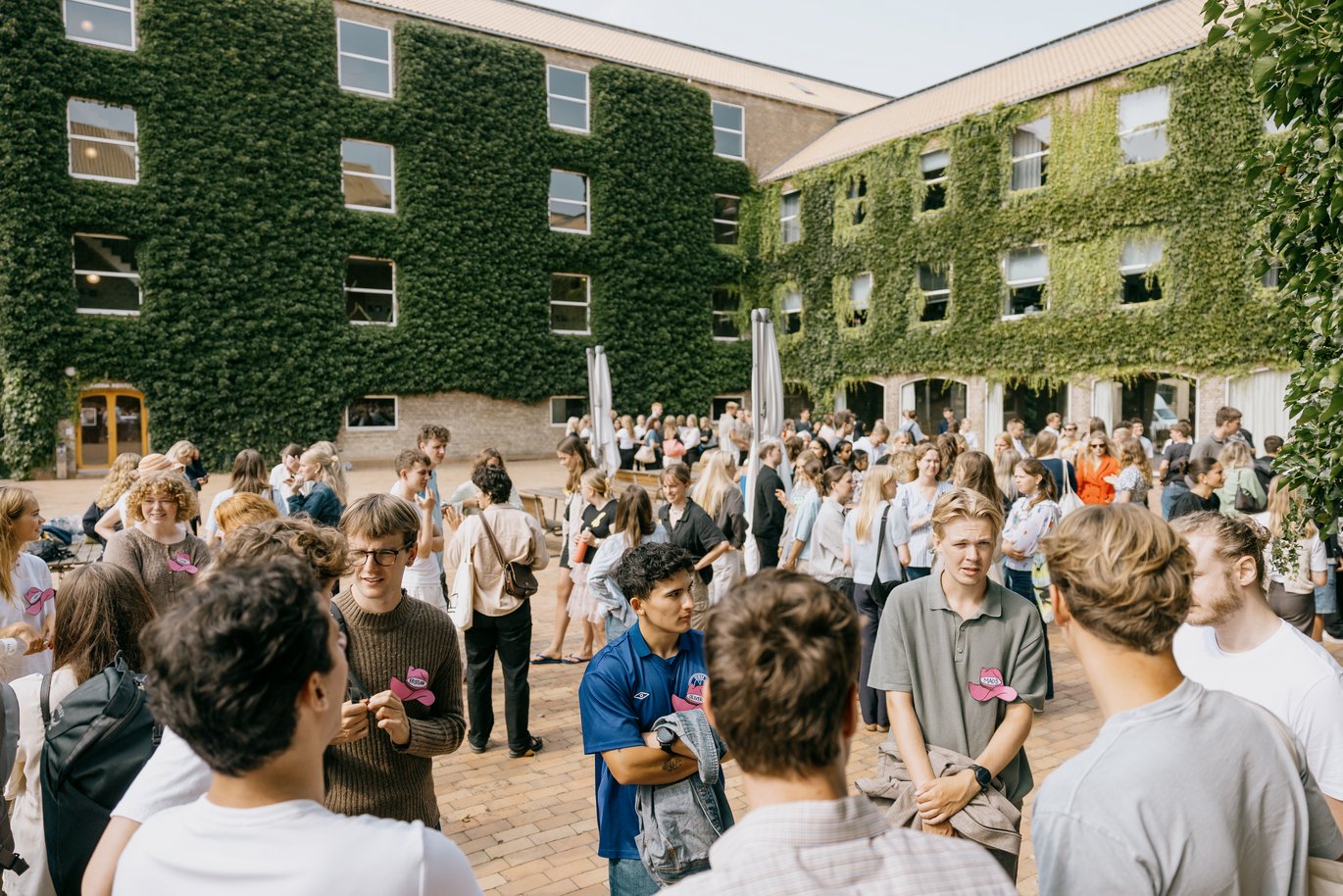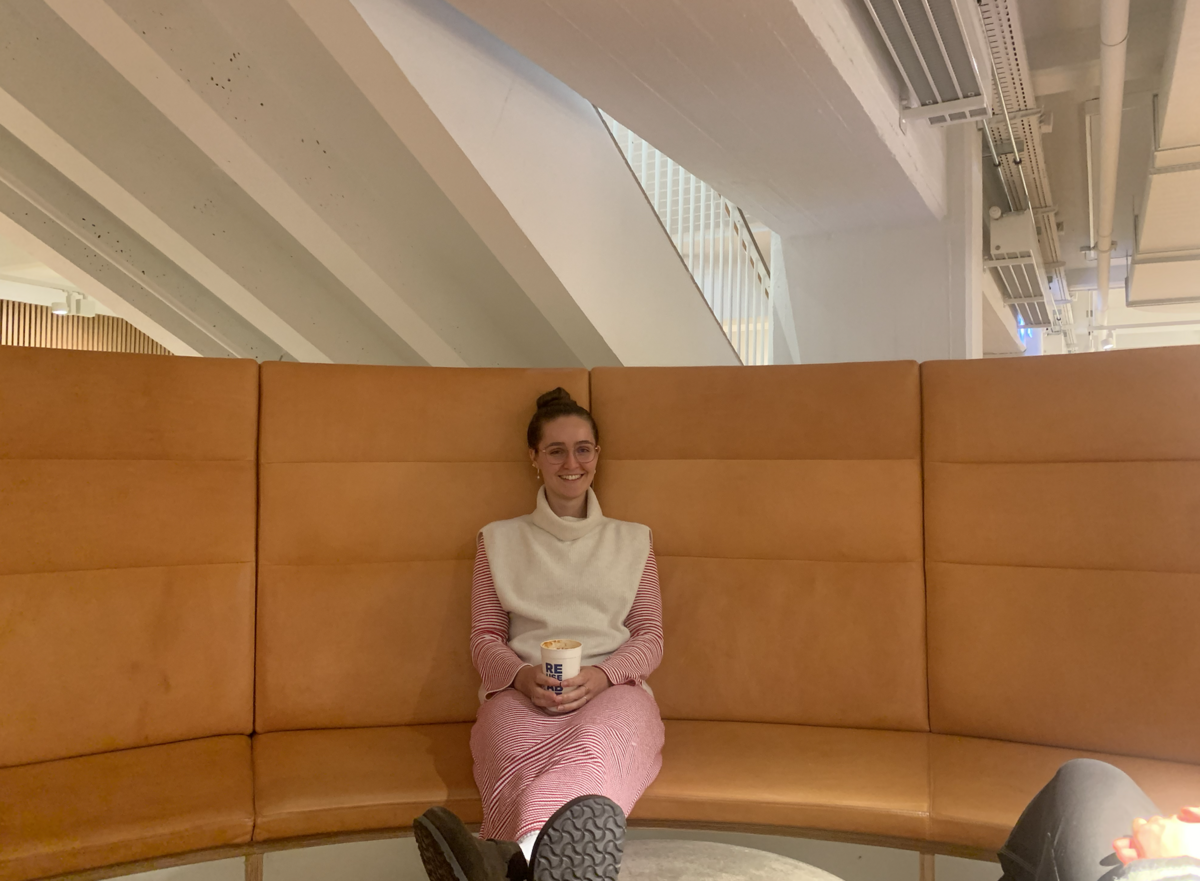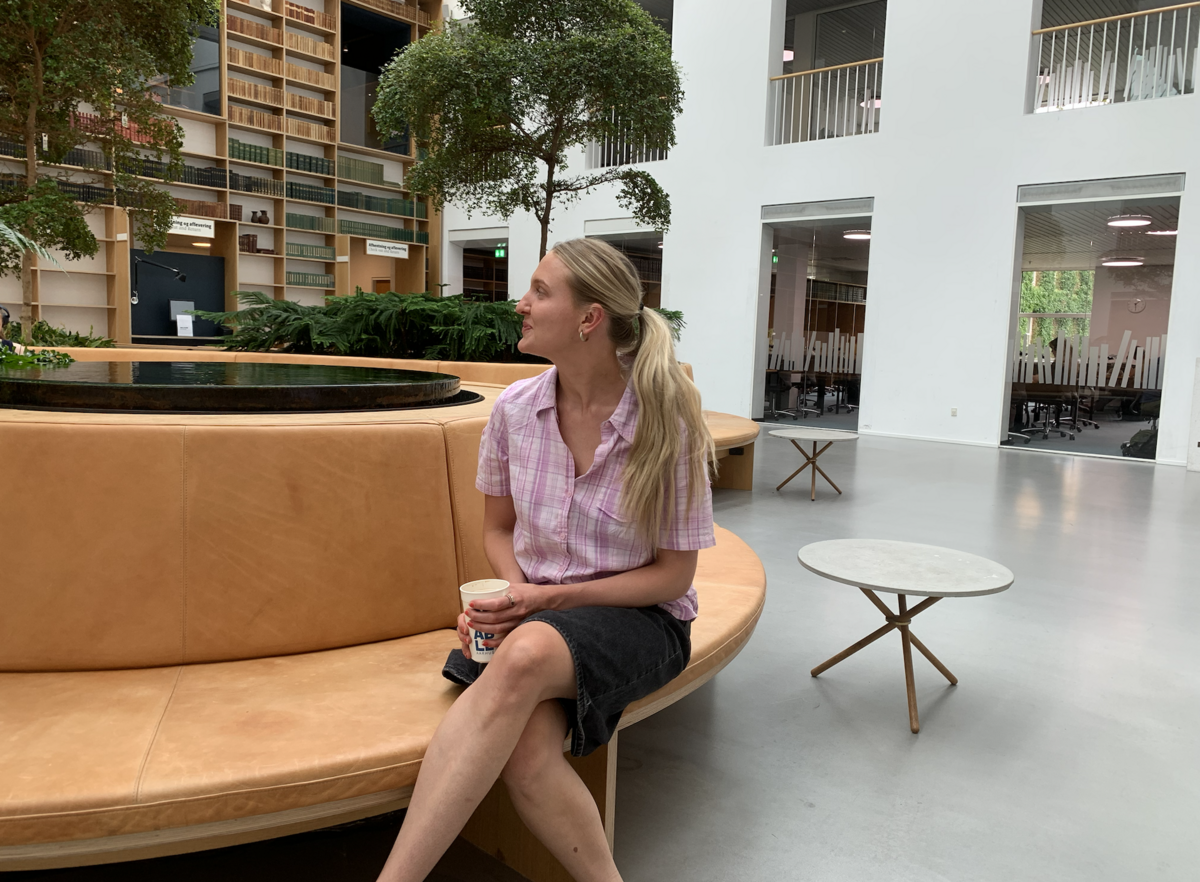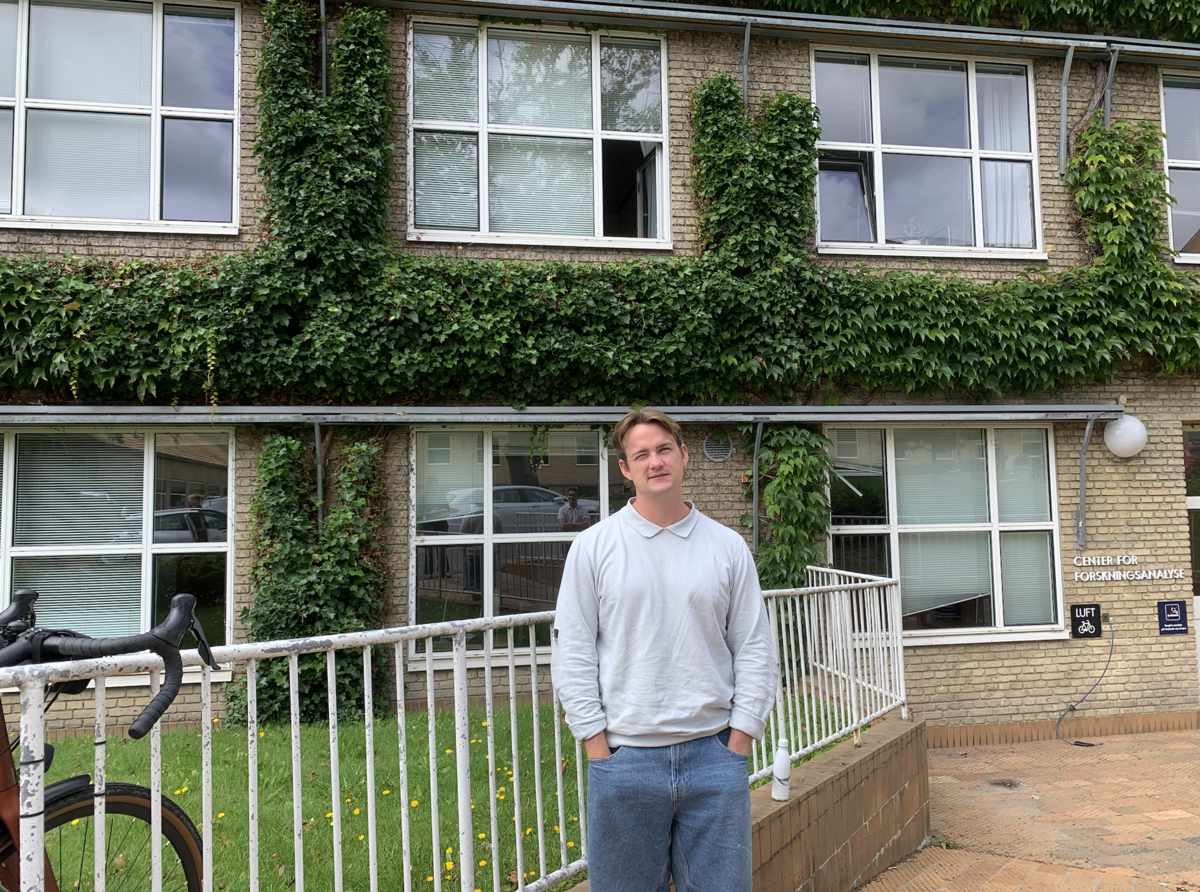New student at AU? Here’s how you life-hack your study start
How do you survive on state educational grant, how can you make the exam period easier for yourself, and how do you avoid social and academic panic at the start of studies at AU? We asked six experienced AU students for their best study hacks. Be patient and open-minded, the five students say. One of them reminds us that the sooner you fall behind with the books, the longer you have to catch up.

Useful apps and links for your student life
Aarhus University was founded in 1928. Today, you can also study at Aarhus University in Viborg, Herning and Emdrup near Copenhagen. And in Aarhus, you will find the university in the University Park, the Nobel Park, at Katrinebjerg, at Kasernen, on Dalgas Avenue, Fuglesangs Allé, at Navitas, Moesgård and the new University City on Nørrebrogade, which has gradually begun to house teaching and administration.
How do I find my way around?
There are many different buildings with classrooms, lecture halls, group rooms and even dormitories, and finding your way around can seem overwhelming. Fortunately, you can download the app AU Find, that gives you an overview of the buildings and classrooms in which you are taught.
Where can I find my schedule?
You can find your schedule on Mitstudie.dk. This website directs you to a wide range of other portals.
Among other things Stads, where you check your grades and sign up for and cancel classes, roombooking, where you can book group rooms for study group work and on mitstudie.dk you can also order a student card, that gives you access to the university after hours.
Where can I find more hacks for student life?
AU Studypedia is the university's official reference work with advice and guides to the many facets of student life. Here you can read about study strategies, group work and find pieces of advice for exams.
While most of AU’s students easily return to lecture halls, Brightspace, and the academic quarter, it’s completely new territory for the 7,441 new students starting at the university these days. Although the start of the semester is fun and exciting, it is also tough and demanding on sleep, finances, and mental capacity.
Therefore, Omnibus took a trip to the University Park and asked a number of experienced students to share their best life hacks for a good study start. Because why not learn from other people's experiences (and mistakes)?
In the basement of the Royal Danish Library, Omnibus meets Astrid Vestergaard and Sarah Goy, who have both just completed their Bachelor's degree in international business administration in German and English, respectively. In the library garden two floors above, second-semester medical student Victoria Vestergaard is taking a break. At 'AU Lib' (AU Library,ed.), law students, Jacob Bredkjær and Rasmus Høi, are both taking an intense course at AU's summer school before writing their master's thesis. In front of the Social Science Canteen, Jonas Hammer from political science is enjoying the sun.
Your top hack for balancing academic and social life at the start of term?
Astrid and Sarah: "Keep an open mind. Of course, you’re scared and nervous, but remember to know your limits, and don't run yourself over socially. It is also a good idea to align expectations with the study group to know each other's ambitions and workloads on the programme. There’s no need to panic. After all, the rest of your life will not disappear because you begin studying. It’ll probably also become a social setting over time, so be patient with yourself."
Jacob and Rasmus: "In the beginning, we put a lot of energy into the social aspect because that's what ultimately carries you through your studies. Prioritise your social connections at university – you can always catch up on academics later. Our tutor told us during our student orientation week that the sooner you fall behind, the longer you have to catch up."
Victoria: "It's important to withdraw when you need to and not force yourself to be social when you're not up for it. It doesn’t work for me to force all sorts of things on myself. I also believe that friendships and study buddies develop naturally, without having to force it.
Jonas: "It's simple. Be open. Just be open. You will be fine socially without being part of all sorts of associations. Just be open and show up to the Friday bar."

What is your best hack to make the SU last as long as possible?
Astrid and Sarah: "Stay updated on the weekly offers at the supermarket and have lunch at the Royal Danish Library. SU stands for educational support, so you can't really do without something to supplement with, for example a student job or savings. A good, but boring piece of advice might be to get a handle on your fixed expenses and make a budget."
Jacob and Rasmus: "A student job is nice to have. We've both had it all the way through our studies. It would probably have been difficult to manage without it, but you adjust your consumption according to your finances. Then you just shop elsewhere than expensive places like Føtex."
Victoria: "I'm a meal prepper, because I’m of the belief that you need a lot of nutrition to be able to learn. So I make big batches and eat the leftovers during the week."
Jonas: "Get yourself a student job. It doesn't have to be relevant to your studies."
Your best hack for a great place to read and write?
Astrid and Sarah: "The Royal Danish Library, because there is a little bit of everything. Sometimes the reading room is too quiet, so it's nice to be able to sit in the canteen. Otherwise, Dokk1. But it’s different for everyone, so you have to find what study setup works best for you.
Jacob and Rasmus: "The Royal Danish Library, because they have some good reading rooms and facilities. It's also good to think of the reading rooms as a place to work, so you can relax in your home."
Victoria: "The Royal Danish Library. It has good lighting, sound, and fresh air. It just has a calmness to it. It varies a bit where I sit. Sometimes I sit in the reading room, other times here in the library garden."
Jonas: "The submarine in building 1331. It's a bit of a hidden gem.”
Your best hack for getting through long exam days on campus?
Astrid and Sarah: "Set up a reading schedule and treat it like work, so you can really focus – ideally somewhere other than home.” Concentration at home is a hit-or-miss. When the study day is over, make dinner plans with your friends and fellow students so that you have something to look forward to during the working day."
Jacob and Rasmus: "Use your fellow students so that you can hold each other accountable during the reading and take good breaks together. The table tennis table at the Royal Danish Library is perfect for that. Also remember to get out and move after a long day in the reading room."
Victoria: "Be kind to yourself. I usually accommodate a crash by making sure I get good sleep and good movement. Remember to take time off when you take time off."
Jonas: "Just make sure you have plenty of snacks and breaks. And then read in short intervals."
The best hack to read long syllabus texts?
Astrid and Sarah: “Start early so you’re not rushed, and figure out how fast you read.” It’s also smart to split the texts in your study group – everyone takes a few pages, reads carefully, and makes solid notes. Then you share the notes with each other. It keeps you going and stops you from hitting a wall after just 50 pages.
Jacob and Rasmus: "Divide it into smaller chunks so they're more edible. And take short breaks in between."

Victoria: "I'm a bit of a break enthusiast, so I just take a lot of breaks during the reading. I do 20 minutes of reading and then break. And I don’t use my phone during that break."
Jonas: "Get an overview instead of reading the entire text in depth. Start with the title and abstract, then focus on the parts your lecturer has put emphasis. You can get a full understanding of the content of the text when you talk to the reading group or have classroom instruction."
This text is machine translated and post-edited by Cecillia Jensen


